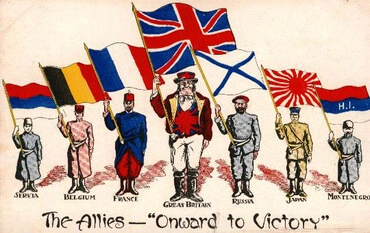1
Dit nu zijn de geboorten van Ezau, welke is Edom.
2
Ezau nam zijn vrouwen uit de dochteren van Kanaan, Ada, de dochter van Elon, de Hethiet, en Aholibama, de dochter van Ana, de dochter van Zibeon, de Heviet;
3
En Basmath, de dochter van Ismael, zuster van Nebajoth.
4
Ada nu baarde aan Ezau Elifaz, en Basmath baarde Rehuel.
5
En Aholibama baarde Jehus, en Jaelam, en Korah. Dit zijn de zonen van Ezau, die hem geboren zijn in het land Kanaan.
6
Ezau nu had genomen zijn vrouwen, en zijn zonen, en zijn dochters, en al de zielen zijns huizes, en zijn vee, en al zijn beesten, en al zijn bezitting, die hij in het land Kanaan geworven had, en was vertrokken naar een ander land, van het aangezicht van zijn broeder Jakob.
7
Want hun have was te veel, om samen te wonen; en het land hunner vreemdelingschappen kon ze niet dragen vanwege hun vee.
8
Derhalve woonde Ezau op het gebergte Seir. Ezau is Edom.
9
Dit nu zijn de geboorten van Ezau, de vader der Edomieten, op het gebergte van Seir.
10
Dit zijn de namen der zonen van Ezau: Elifaz, de zoon van Ada, Ezau's huisvrouw; Rehuel, de zoon van Basmath, Ezau's huisvrouw.
11
En de zonen van Elifaz waren: Teman, Omar, Zefo, en Gaetam, en Kenaz.
12
En Timna was een bijwijf van Elifaz, den zoon van Ezau, en zij baarde aan Elifaz Amalek; dit zijn de zonen van Ada, Ezau's huisvrouw.
13
En dit zijn de zonen van Rehuel: Nahath, en Zerah, Samma en Mizza; dat zijn geweest de zonen van Basmath, Ezau's huisvrouw.
14
En dit zijn geweest de zonen van Aholibama, dochter van Ana, dochter van Zibeon, Ezau's huisvrouw; en zij baarde aan Ezau Jehus, en Jaelam, en Korah.
15
Dit zijn de vorsten der zonen van Ezau: de zonen van Elifaz, den eerstgeborene van Ezau, waren: de vorst Teman, de vorst Omar, de vorst Zefo, de vorst Kenaz.
16
De vorst Korah, de vorst Gaetam, de vorst Amalek; dat zijn de vorsten van Elifaz in het land Edom; dat zijn de zonen van Ada.
17
En dit zijn de zonen van Rehuel, den zoon van Ezau: de vorst Nahath, de vorst Zera, de vorst Samma, de vorst Mizza; dat zijn de vorsten van Rehuel in het land Edom; dat zijn de zonen van Basmath, de huisvrouw van Ezau.
18
En dit zijn de zonen van Aholibama, de huisvrouw van Ezau: de vorst Jehus, de vorst Jaelam, de vorst Korah; dat zijn de vorsten van Aholibama, de dochter van Ana, de huisvrouw van Ezau.
19
Dat zijn de zonen van Ezau, en dat zijn hunlieder vorsten; hij is Edom.
20
Dit zijn de zonen van Seir, den Horiet, inwoners van dat land: Lotan, en Sobal, en Zibeon, en Ana,
21
En Dison, en Ezer, en Disan; dat zijn de vorsten der Horieten, zonen van Seir, in het land van Edom.
22
En de zonen van Lotan waren Hori en Hemam; en Lotans zuster was Timna.
23
En dit zijn de zonen van Sobal: Alvan en Manahath, en Ebal, en Sefo, en Onam.
24
En dit zijn de zonen van Zibeon: Aja en Ana, hij is die Ana, die de muilen in de woestijn gevonden heeft, toen hij de ezels van zijn vader Zibeon weidde.
25
En dit zijn de zonen van Ana: Dison; en Aholibama was de dochter van Ana.
26
En dit zijn de zonen van Dison: Hemdan, en Esban, en Ithran, en Cheran.
27
Dit zijn de zonen van Ezer: Bilhan, en Zaavan, en Akan.
28
Dit zijn de zonen van Disan: Uz en Aran.
29
Dit zijn de vorsten der Horieten: de vorst Lotan, de vorst Sobal, de vorst Zibeon, de vorst Ana.
30
De vorst Dison, de vorst Ezer, de vorst Disan; dit zijn de vorsten der Horieten, naar hun vorsten in het land Seir.
31
En dit zijn koningen, die geregeerd hebben in het land Edom, eer een koning regeerde over de kinderen Israels.
32
Bela dan, de zoon van Beor, regeerde in Edom, en de naam zijner stad was Dinhaba.
33
En Bela stierf, en Jobab, de zoon van Zerah, van Bozra, regeerde in zijn plaats.
34
En Jobab stierf, en Husam, uit der Temanieten land, regeerde in zijn plaats.
35
En Husam stierf, en in zijn plaats regeerde Hadad, de zoon van Bedad, die Midian versloeg in het veld van Moab; en de naam zijner stad was Avith.
36
En Hadad stierf, en Samla, van Masreka, regeerde in zijn plaats.
37
En Samla stierf, en Saul van Rehoboth, aan de rivier, regeerde in zijn plaats.
38
En Saul stierf, en Baal-Hanan, de zoon van Achbor, regeerde in zijn plaats.
39
En Baal-Hanan, de zoon van Achbor, stierf, en Hadar regeerde in zijn plaats; en de naam zijner stad was Pahu; en de naam zijner huisvrouw was Mechetabeel, een dochter van Matred, de dochter van Mezahab.
40
En dit zijn de namen der vorsten van Ezau, naar hun geslachten, naar hun plaatsen, met hun namen: de vorst Timna, de vorst Alva, de vorst Jetheth,
41
De vorst Aholibama, de vorst Ela, de vorst Pinon,
42
De vorst Kenaz, de vorst Teman, de vorst Mibzar,
43
De vorst Magdiel, de vorst Iram; dit zijn de vorsten van Edom, naar hun woningen, in het land hunner bezitting; hij is Ezau, de vader van Edom.







